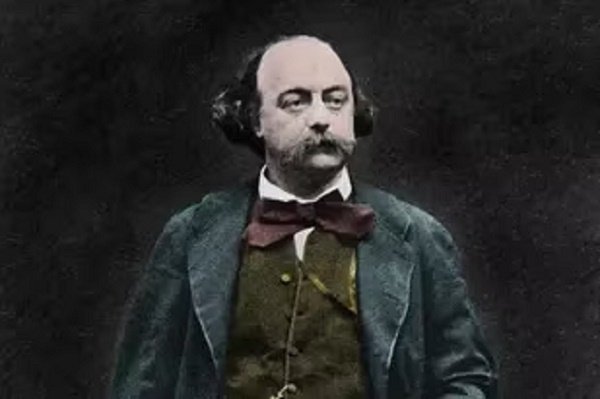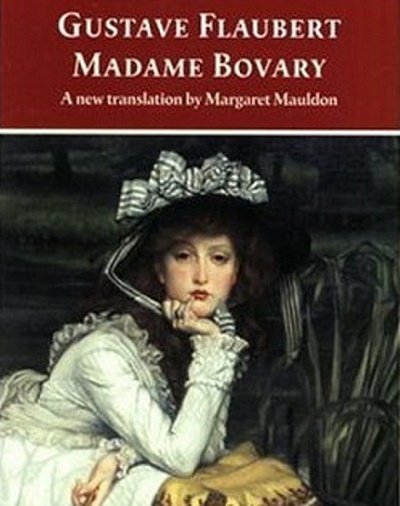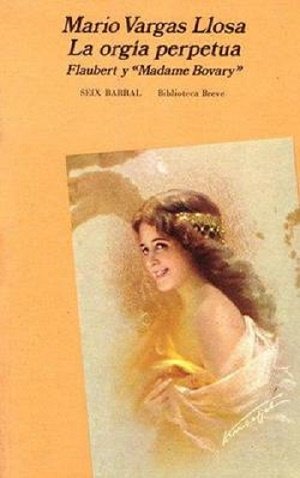Madame Bovary soy yo (microficción en homenaje a Gustave Flaubert) | Madame Bovary am I (microfiction in homage to Gustave Flaubert)
El gran novelista francés, Gustave Flaubert, murió el 8 de mayo de 1880. Autor de una de las novelas universales más importantes, Madame Bovary (1856, 1857), entre otras novelas, fue un escritor clave en el desarrollo de la novelística moderna. Sobre su obra, y en particular, sobre la novela mencionada, se han realizado muchos estudios; uno de los más reconocidos es La orgía perpetua: Flaubert y Madame Bovary (1975) del escritor Mario Vargas Llosa. En un post publicado aquí en el 2020 abordé su importancia en la literatura; si estás interesado puedes ir a este enlace.
En su memoria, un ejercicio de microficción, concebido como una entrevista imaginaria hecha por un periodista de la Revista de París, para lo cual tomé algunas frases dichas o atribuidas a Flaubert.

The great French novelist, Gustave Flaubert, died on May 8, 1880. Author of one of the most important universal novels, Madame Bovary (1856, 1857), among other novels, he was a key writer in the development of the modern novel. On his work, and in particular, on the aforementioned novel, many studies have been made; one of the most recognized is La orgía perpetua: Flaubert y Madame Bovary (1975) by the writer Mario Vargas Llosa. In a post published here in 2020 I addressed its importance in literature; if you are interested you can go to this link.
In his memory, a microfiction exercise, conceived as an imaginary interview made by a journalist of the Paris Review, for which I took some phrases said or attributed to Flaubert.

P: Tuvimos en la Revista de París (Revue de Paris) el honor de publicar, por entregas, su novela Madame Bovary, que fue duramente acosada por atentar contra la moral pública. Igual pasó con Las flores del mal del poeta Baudelaire.
G:F: Una vez dije o escribí: “El deber de uno es sentir lo que es grande, apreciar lo bello y no aceptar las convenciones de la sociedad con la ignominia que nos impone”. Se puede ir a lo grande y lo bello a través de lo ruin y lo feo, así lo ha mostrado Baudelaire en su poema “La carroña”. Y descubrir o revelar lo escondido en el alma humana, en sus miserias y oscuridades. Sólo que “la estupidez radica en querer sacar conclusiones” y mostrarse como verdad, siendo lo que experimentamos simplemente una percepción.
P: ¿Qué quiso decir con “Madame Bovary soy yo”?
GF: Creo que esa frase no la dije, pero podría haberlo hecho. Lejos de mí el propósito de que mi escritura sea una versión visible de mi vida, aunque ella esté allí presente. Madame Bovary y su suerte quizás pueda interpretarse como el personaje y la historia que somos en ella, marcados por la insatisfacción y la ambición, por el deseo y el fracaso, por la inocencia y la mentira. El arte tal vez sea la menos falaz de nuestras mentiras. ¿Sería mejor decir “Madame Bovary somos todos”?
P: Se tomó generalmente mucho tiempo para terminar y publicar sus obras, como pasó con la propia Madame Bovary, incluso algunas las reescribió, como La tentación de San Antonio y La educación sentimental. ¿A qué se debe esa actitud?
GF: La creación literaria es un arte de la paciencia. Su proceso se asemeja al acrisolamiento; esa decantación que logra la expresión propia que se llama estilo. Algunos me citan con aquello de: “Me pasé la mañana poniendo una coma y la tarde quitándola”. Siempre he estado en contra de lo fácil, la mediocridad y la vulgaridad.
P: ¿Y qué sucedió con su Bouvard y Pécuchet? Su obra inacabada.
GF. ¡Ah! Fue una pretensión mía, que me superó en el momento. Aspiraba a escribir la novela sobre la estupidez humana. “Se necesita una voluntad sobrehumana para escribir, y solo soy un hombre”, creo que dije alguna vez.

J: We had the honor of publishing, in the Revue de Paris (Revue de Paris), your novel Madame Bovary, which was severely harassed for being against public morality. The same happened with The Flowers of Evil by the poet Baudelaire.
GF: I once said or wrote: "One's duty is to feel what is great, to appreciate what is beautiful and not to accept the conventions of society with the ignominy it imposes on us". One can go to the great and the beautiful through the dastardly and the ugly, as Baudelaire has shown in his poem "The Carrion". And discover or reveal what is hidden in the human soul, in its miseries and obscurities. Only that "the stupidity lies in wanting to draw conclusions" and to show ourselves as truth, being what we experience simply a perception.
J: What did you mean by "Madame Bovary is me"?
GF: I don't think I said that sentence, but I could have. Far be it from me to intend my writing to be a visible version of my life, even though she is there present. Madame Bovary and her fate can perhaps be interpreted as the character and the story we are in it, marked by dissatisfaction and ambition, by desire and failure, by innocence and lies. Art is perhaps the least fallacious of our lies. Would it be better to say "Madame Bovary is all of us"?
J: You generally took a long time to finish and publish your works, as happened with Madame Bovary herself, even rewriting some of them, such as The Temptation of St. Anthony and The Sentimental Education. What is the reason for this attitude?
GF: Literary creation is an art of patience. Its process resembles the process of acrisolamiento; that decantation that achieves self-expression, which is called style. Some people quote me: "I spent the morning putting in a comma and the afternoon taking it out". I have always been against the easy, mediocrity and vulgarity.
J: And what happened to your Bouvard and Pécuchet? Your unfinished work.
GF: Ah! It was a pretension of mine, which overcame me at the time. I aspired to write the novel about human stupidity. "It takes a superhuman will to write, and I'm only one man," I think I once said.

Gracias por su lectura | Thank you for reading.





Esta publicación ha recibido el voto de Literatos, la comunidad de literatura en español en Hive y ha sido compartido en el blog de nuestra cuenta.
¿Quieres contribuir a engrandecer este proyecto? ¡Haz clic aquí y entérate cómo!
Cuántas verdades en tan pocos diálogos. Me ha gustado mucho esta microficción. Saludos.
Agradecido por tu lectura y apreciación, estimado @juniorgomez.